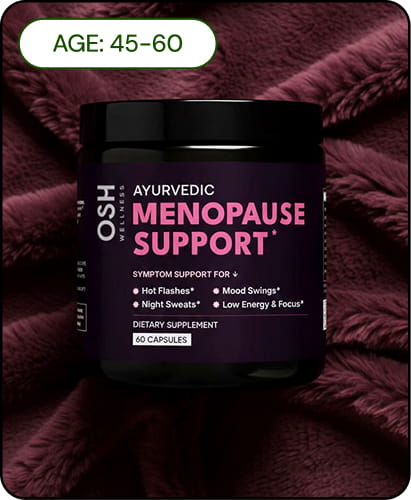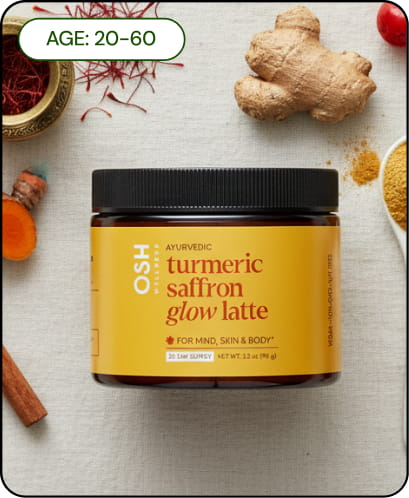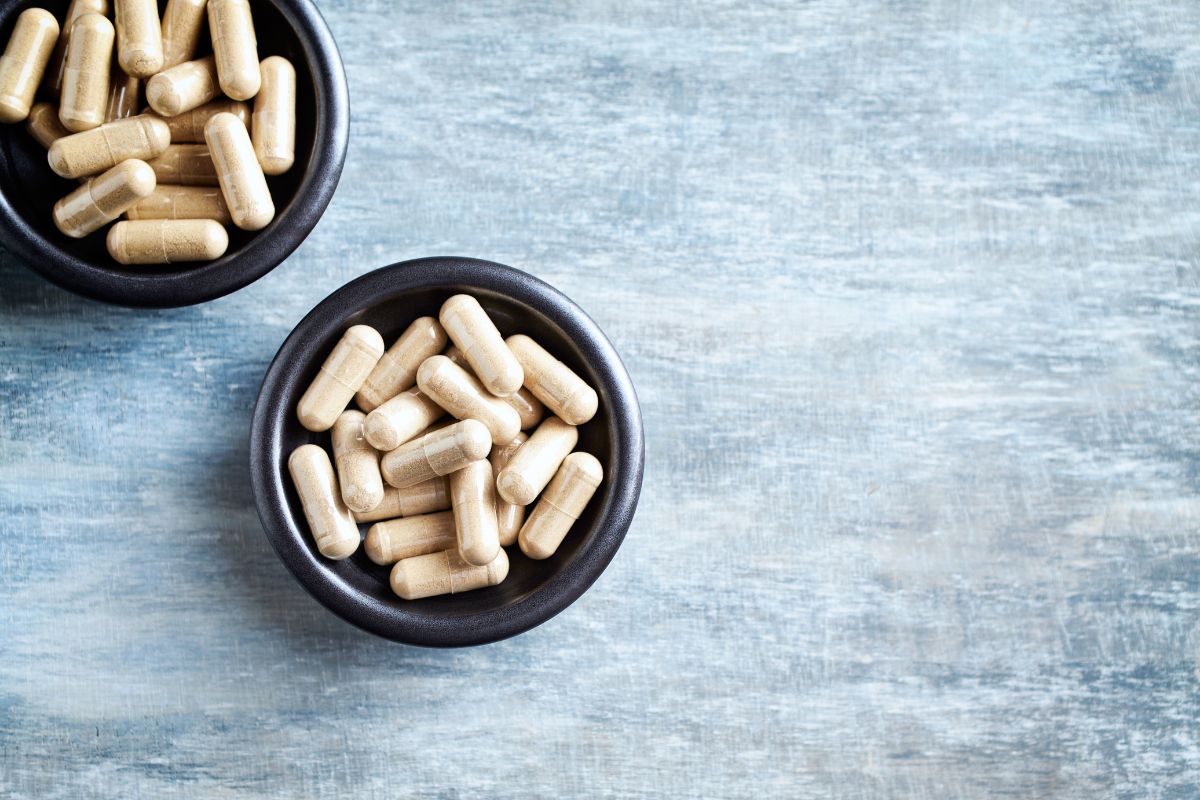Table of contents
If you're trying to conceive, you may be interested in male fertility supplements. After all, it takes two to make a baby. Male fertility is gaining awareness and is an essential component when trying to get pregnant.
However, all-male fertility supplements are not created equal. Many men's fertility supplements claim that they can boost semen quality and quantity and improve libido. But how do you know if the supplements you're thinking about for male infertility are safe and of good quality? We've created a helpful guide that provides in-depth information on popular male fertility vitamins as well as commonly asked questions.
What Is a Male Fertility Supplement?

Men's fertility support supplements are usually vitamins and/or tonics that can help with men's fertility. Men can take these dietary additions regularly to help boost semen volume, sperm count, sperm motility, and libido. Often, they are made up of vitamins, minerals, or natural compounds from plants or animals.
Supplements for male infertility can be found in pill form, as powders, or even liquids. There is a wide variety of infertility vitamins on the market, and it's essential to research your options and check for quality before you start taking anything. Almost all of them are meant to support nutritional needs and repair imbalances or inefficiencies. They are packed with vitamins, minerals, and herbs that have been shown to improve sperm health parameters.
However, it's essential to know that not every man needs a fertility supplement. Equally, those suffering from infertility may not always benefit from supplements for male infertility.
Who Should Use It and Who Should Not Use It?
If you're struggling to start a family, you may turn to men's fertility supplements for a solution. Before you do, though, it's a good idea to meet with your physician.
Doctors have found that in almost half of all cases of couples struggling to conceive, the man plays a role. Furthermore, in 20% of these cases, the man is the sole factor in the couple's ability to get pregnant. However, many men don't think about their fertility until they're in the position of trying to conceive.
If you're having trouble starting a family, see your doctor first. They can evaluate your overall health and reproductive health to try and determine the cause of the issue. In many cases, nutritional deficiencies or undetectable causes may play a role and be improved with male fertility supplements. Alternatively, supplements may not provide a great deal of help if you are dealing with a severe medical issue such as sterility.
Nevertheless, supplements are powerful fertility boosters in some cases and for some men. Many natural supplements are also generally safe for consumption without a medical evaluation.
How Long Should You Take Male Fertility Supplements?

When it comes to the period of time you should take male fertility supplements, there are two considerations. The first is how early you should start in order to make a difference in your TTC journey. The second is, can you take a supplement too long, and are there any dangers to taking an excess supplement?
Let's start with how soon you should include a fertility supplement in your diet. In general, Ayurveda believes it takes at least three months to prepare the body for healthy conception. These 90+ days is a time for your body to reset, rejuvenate, and replenish itself.
This is especially important considering sperm begin their developmental journey 70-90 days before they are ready to be ejaculated. In order to achieve the healthiest sperm and the most quantity, you'll want to support their development throughout the entire formation period.
A minimum of thirty days can be used before trying to conceive, though Ayurveda encourages 90. You'll want to continue taking these supplements until pregnancy is achieved. This can be sooner rather than later for some.
But what if you exceed the three-month preconception period? You don't want an excessive amount of specific vitamins and minerals. If conception is not achieved in a three-month period, you may wish to take a break for a month and then start your routine again. This generally coincides with taking a break for one menstrual cycle for women.
Excess nutrient compounds aren't ideal because they can lead to health problems if you routinely take too many supplements. For example, too much vitamin C can lead to kidney stones, and excess iron can cause GI upset. In rare cases, surplus amounts of antioxidants can have the opposite effect on fertility, lowering it instead of boosting it.
What Ingredients Should a Men's Fertility Supplement Contain?

The best male fertility supplements contain a blend of classic western ingredients, like vitamins and minerals and traditional herbal ingredients.
Vitamins and minerals like CoQ10, Zinc, and selenium can help increase nutrient stores and support the reproductive system. Nourishing ingredients like these can aid in sperm development and quantity.
Herbs and traditionally used plants can aid fertility as well. They often contain nourishing vitamins and minerals that can assist the male reproductive system. However, this is not their only benefit. These plants can help combat other health factors that can negatively impact fertility.
Adaptogens like ashwagandha and shatavari help the body fight the effects of oxidative stress. They can improve mood and promote a sense of calm. Improved feelings of well-being may lead to increased libido and sexual function. Furthermore, many of these herbal supplements are natural aphrodisiacs, boosting sexual drive in men.
Like Ayurveda's approach to wellness in general, which takes into consideration a person's entire being, so should a male fertility supplement. A well-rounded supplement should pay attention to reproductive health, other bodily processes, and mental wellness affecting fertility.
How Do Male Fertility Supplements Work?
There are various components to female fertility, such as the egg and the uterus. However, when it comes to men's fertility, there is only one consideration – sperm.
Sperm is required to fertilize the egg during conception. To do so, it needs to make it through a variety of barriers, such as the cervix. It also needs to be able to survive in the uterus until an egg is released. Then, once the egg is ready, the sperm must be able to swim to it and fertilize it.
It only takes one healthy sperm to fertilize an egg. Still, each time a man ejaculates, close to nearly 100 million are released. Why? Because their journey is arduous, and the odds are stacked against them. Few sperm survive; many believe this is a form of natural selection in which only the healthiest sperm are allowed to reach the egg in hopes of fertilization.
Many factors affect sperm health, including quality, quantity, morphology, and motility. Motility is a sperm's ability to move or swim. Sperm morphology refers to the sperm's shape and overall size. The sperm should have a precisely shaped head and tail and be the proper size to reach the egg and penetrate it.
A good supply of semen and sperm within the semen is needed to have the best chances at conception. Finally, healthy sperm often have better motility. When they fertilize an egg, the embryo has a better chance of developing into a healthy baby.
Men's fertility support works by focusing on all aspects of the sperm. For example, zinc has been shown to improve sperm quality, count, and motility, often positively affecting sperm during the earliest development phase. Vitamin E, an antioxidant, helps control cellular damage and free radicals, typically improving sperm morphology and motility. As mentioned, herbal supplements like ashwagandha help improve the body's resilience to stress, promoting health on the whole and positively impacting fertility.
Men's fertility supplements are usually taken once a day. Thoughtfully crafted supplements contain the right ingredients in the correct amounts to nourish and support a man's body and fertility each and every day without over supplementing or having too little potency.
However, using supplements alone to increase fertility is not ideal. Instead, couples should add supplements to a preconception routine. Taking men's supplements for fertility should be done in conjunction with healthy lifestyle changes, daily exercise, emotional well-being activities, smart eating, and a focus on promoting relationship with the partner.
A holistic approach to fertility, devoting attention to all the aspects of a person's health using various methods and conscious decisions, is generally the best way to improve your chances of conceiving.

What is the Best Men's Fertility Supplement?
As mentioned, the best men's fertility supplement takes a broad view of a man's reproductive health. It doesn't focus solely on sperm quality or libido. Instead, it works to improve his overall health in order to promote fertility.
This holistic view fueled our efforts to create our men's fertility supplements. These capsules contain a potent blend of vitamins, minerals, and herbal supplements that have been scientifically researched and trusted for centuries regarding promoting male fertility.
We thoughtfully considered even the prescribed regimen for our capsules in order to provide a couple with the best chances of conceiving. We don't promote our products as magic pills. Instead, they're part of a man's conscious commitment to improving his fertility through a healthy lifestyle and mindful choices.
Let's take a deeper look at the powerful ingredients we carefully hand-selected to include in our Fertility Support for Him.
Vitamin C (as Ascorbic Acid)
A few things come to mind when we hear about vitamin C, such as immunity and oranges. But did you know that it can be an essential fertility aid?
One study found that regular vitamin C supplementation led to improved sperm concentration and output in men. Similarly, researchers discovered that when infertile men took vitamin C, they experienced improved sperm motility, morphology, and greater sperm count.
This is likely because vitamin C is an antioxidant, meaning it helps to fight off the effects of damaging free radicals. Free radicals can harm sperm production and quality. High levels of free radicals, particularly those of the reactive oxygen species, can significantly impair fertility. Taking a free-radical neutralizing supplement like vitamin C can limit the damage.
It is beneficial for men and women, too, helping to balance hormone levels, especially in women with a luteal phase defect.
Vitamin D (as Cholecalciferol)
Vitamin D is essential for good sperm motility. Remember, sperm motility is how well sperm can swim once deposited inside the uterus. They need to pass the cervix and make their way up to the egg for fertilization to happen.
Some studies have found that men with low sperm count and quality may have a vitamin D deficiency. When infertile men were supplemented with vitamin D, they had better sperm motility. Before sperm reach the end of their development, vitamin D levels also come into play. It is believed that vitamin D improves teste function, thereby positively influencing the production and development of spermatozoa.
Vitamin D may also boost testosterone concentrations, which can lead to an increased libido.
Vitamin E (as d - Alpha Tocopherol)
Vitamin E is a fat-soluble vitamin that acts as an antioxidant, fighting free radicals and their harmful effects. It can serve as a defense against free radicals that can harm sperm production and development. Researchers have found that vitamin E supplementation leads to better sperm morphology and motility.
Furthermore, it is believed that sperm with damaged DNA can lead to miscarriages. Taking vitamin E may improve sperm health and protect the sperm membrane, reducing the risk of miscarriage. In one study, those who ingested vitamin E saw a higher live birth rate.
The protective effects of vitamin E can be boosted with vitamin C, as vitamin C is required in vitamin E regeneration. Receiving both in a fertility supplement can be very beneficial.
Vitamin B9 (Folate as 5-Methyltetrahydrofolate)
In its natural form, vitamin B9 is called folate. Folate has long had a reputation for being used during pregnancy to reduce the risk of congenital disabilities. However, it is crucial pre-pregnancy as well.
Vitamin B9 comes into play during cell division and DNA synthesis, and it is an essential nutrient for these processes. Therefore, levels of vitamin B9 may affect sperm health and sperm count. Low levels of this vitamin have been associated with higher rates of sperm DNA damage.
Vitamin B9, when combined with zinc, was long believed to increase sperm count, though studies have produced inconsistent results. Particularly in men with oligoasthenoteratozoospermia (OAT), vitamin B9 may not drastically increase fertility. OAT is a condition in which sperm count is lower than average, and the quantity of normally shaped sperm is low, resulting in abnormally low motility.
Nevertheless, vitamin B9 is crucial for DNA synthesis, and supplementation may positively affect sperm health and morphology.
Zinc (as Zinc Oxide)
Zinc is a trace element. Being deficient in zinc can impair both female and male fertility. Zinc is required for various functions of the male reproductive system. Low levels of zinc can lead to poor sperm quality and poor fertility.
Zinc is often at its highest concentrations in seminal plasma, higher than in any other tissues in the body. High zinc levels in seminal plasma help protect the sperm membrane and are associated with better sperm morphology, motility, and count. Sperm has been positively associated with higher and more balanced levels of testosterone.
Additionally, zinc is an antioxidant, helping to fight the effects of oxidative stress that can damage sperm membranes. Whether or not a supplement contains zinc for men's fertility should be considered when looking for men's fertility vitamins.
Selenium
Selenium is also a trace mineral that is found in soil. It is beneficial for men hoping to conceive due to its positive effects on both sperm quality and quantity.
Studies have found that selenium is essential for testosterone metabolism, which in turn affects sperm production. The mineral is required for spermatogenesis, or sperm cell production, within the male reproductive organs. Adequate levels of selenium help protect developing sperm from mutations or abnormalities, boosting their motility and increasing the chances of a successful pregnancy should fertilization occur.
Organic Ashwagandha Powder (Withania somnifera) (root)
Ashwagandha is an adaptogen, meaning it helps your body better deal with the effects of stress. Stress can wreak havoc on your reproductive system and your fertility.
Not only does it decrease cortisol levels, but it also improves circulation, which may lead to better sperm quality. Ashwagandha's ability to regulate reproductive hormone levels leads to better sperm motility and quantity too.
It's a powerful supplement that can benefit a man's overall health in addition to his fertility.
Mucuna Pruriens Extract (98% L-Dopa)
Does your men's fertility support contain mucuna pruriens? Well, it should!
Also known as velvet bean, it's a tropical legume. It has a powerful effect on many chemical substances that impact fertility. When a supplementation of mucuna pruriens was undergone, men experienced better hormone levels and, in turn, much better sperm motility and count.
It has been found to increase sperm production, boosting the quantity of sperm found in seminal plasma. Steroidogenesis, or the process by which testosterone is produced, is believed to be strongly influenced by mucuna pruriens, leading to increased fertility.
Maca Root Powder (Lepidium Meyenii)
Maca root powder assists with nearly every aspect of male fertility. Supplementation with maca has resulted in better sperm motility and health as well as increased quantity.
Maca may also positively affect libido, acting as a natural aphrodisiac.
Tribulus Terrestris (fruit)
You likely aren't familiar with Tribulus Terrestris. This spiny fruit has long been touted as an aphrodisiac. In men, it increases the levels of luteinizing hormone (LH). Though this hormone is most commonly discussed with female fertility, it is essential for testosterone production.
Additionally, Tribulus Terrestris has been found to boost sperm motility and protect it against damage, increasing sperm viability.
Shatavari (Asparagus racemosus)
Shatavari is known as the "Queen of Herbs," but don't let that mislead you. It is an adaptogen, fighting the adverse effects of stress on your body. Used for centuries in Ayurveda for its cooling and purifying properties, it is thought to prevent sperm loss due to excess pitta (or heat) in a man's body.
Studies have shown that Shatavari supplementation results in increased reproductive fluids and sperm count, a reduction of inflammation of reproductive organs, and the ability to help correct impotence.
Coenzyme Q10 (CoQ10) (Ubiquinone)
Coenzyme Q10 commonly goes by CoQ10. It's usually sought after for its ability to help with high blood pressure, cardiac diseases, and joint pain. However, studies have found it beneficial for sperm motility and movement, even helping those with OAT. CoQ10 may also improve sperm count.
As an antioxidant, it can help protect sperm from damaging oxidative stress, leading to improved sperm morphology and reduced DNA fragmentation. This means more viable sperm for fertilization and healthy pregnancy.
The Bottom Line
You could try to find all of these supplements, but you would likely have numerous capsules, powders, and tonics that would be time-consuming and tricky to take. Instead, go with a supplement that provides you with all of these powerhouse nutrients in one simple capsule – Osh Wellness Fertility Support for Him.
It's one of the best male fertility supplement brand in the market because of its thoughtful inclusion of time-tested traditional Ayurvedic herbs and well-researched vitamins and minerals common in western medicine.
We've been overjoyed and overwhelmed with the success of our fertility capsules for many couples. At Osh Wellness, we don't believe our product is a magical pill. However, we believe it is an essential and invaluable part of a preconception routine.
We want to work to improve your overall health in addition to supporting and nourishing your reproductive system. When combined with other preconception routine activities, we believe our supplement will boost your fertility and set you and your partner up for the healthiest pregnancy possible.








